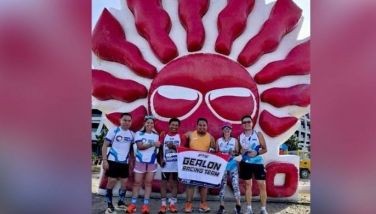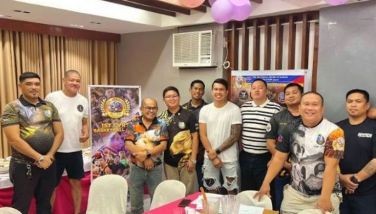SEAG: What’s next?
With everyone on a high from the over-all championship finish of the Philippines at the 30th Southeast Asian Games, one of the most logical questions being asked is “What’s next?” What’s next for our athletes? What’s next for our world-class sports facilities? What’s next for our national sports associations (NSA)? The Philippines Sports Commission (PSC)? The Philippine Olympic Committee (POC)? It’s a question that will have concrete answers if our stakeholders in sports have a genuine program laid out, and if thinking about the long term is a norm and nothing strange.
Allow to me share an activity that took place this past week, but is unfortunately not one of the more popular sports activities. It’s the continued education, training and upgrading of coaches. We’ll hear a lot about how our national athletes will continue training and strive to get more medals in the next competitions that they’ll join. We’ll also hear about how our facilities may be used for other future events (domestic and international). The PSC is now working on the incentives of the winners of the SEAG and how to continue supporting national athletes. On this note, I’d like to see more programs for the sharpening of the saw, the continued development of coaches.
Last Monday to Wednesday, Italian coach Fabio Menta conducted a clinic/workshop for volleyball coaches at the SHS-Ateneo de Cebu. He also ran a clinic for players with the coach-participants of his clinic as active observers. For three days, the coaches listened to Menta run a clinic entitled “A Scientific Approach to Modern Volleyball.” I found it interesting that like all sports, there is a scientific way of doing things and its basis lies in the fundamentals of the sport. Coach Fabio stressed how the fundamentals had to be in place before anything else can be developed, tried or “experimented.” He also added how we in the Philippines may have failed to work on the fundamentals of the sport, making it difficult for experienced players to be open to changing their ways. His topics focused on the basics of the sport, and although this sounded familiar to all, he managed to open the eyes of all participants. Some realized that some of the “basics” that they were teaching weren’t spot-on correct. On his Facebook profile page, SHS-Ateneo de Cebu volleyball coach Mario Sala summarized how much he learned (and unlearned) after all his years as a coach of the sport. “Thank you for being so direct with your inputs and comments. I thought I knew 50% of volleyball already just because I have coached for 12 years. What I didn’t know is there is still 150% more, just to say the least! Thanks Coach Fabio,” Sala posted.
This reminded me of how Pinoys follow their American idols in basketball and copy everything they do, even if we are nowhere near Americans in terms of size, athleticism and talent. Many young players want to be the next Michael Jordan or Kobe Bryant: Be like Mike. Just do it. Nothing is impossible. And we saw how this me-ball, isolation-type basketball failed miserably at the recent FIBA World Cup against the more basic pass-the-ball, break that defense down and find the player with the best shot approach. This was how Italy and Serbia took us down. The only “good news” was that Angola’s style of play was the same as ours, thus making our game close; but we still lost in overtime.
This leads me to a basketball coaches seminar/clinic that started yesterday and ends today also at the SHS-Ateneo de Cebu campus. Coach Jong Uichico is here with a five-man team to help our local coaches become better coaches. This is a project of the SBP Coaches’ Academy, one of the operating arms of the Samahang Basketbol ng Pilipinas that has a goal of forming coaches across the country. And what will they teach? They’ll actually teach nothing but the basics as well. They’re not going to preach how Europe plays and how the Americans play. These can be saved for a future clinic. But for now, it’s all about what else? The basics/fundamentals. Again, isn’t it strange that we Pinoys have been playing the sport for such a long time yet the main theme of the seminar/clinic is “the basics”?
My personal wish is that all coaches of all events are trained and formed well in just one thing: the basics. There is no such thing as a college or school in coaching, and most, if not all of our coaches learned how to coach on their own through the school of personal experience. They were once players who trained under a coach, then later learned to be coaches themselves. The irony is that many of their basic starting points of learning may have been wrong. Coaches are probably the most important members of the sports family. They are the teachers all athletes and are responsible for their growth. If they teach their athletes the right way, we’ll have athletes who will execute the basics correctly and will eventually become better athletes. Better athletes will mean better performances in competitions. And so where does it all start? The Coaches.
What to do with coaches after the SEAG? Train the coaches and you’ll never go wrong.
- Latest























